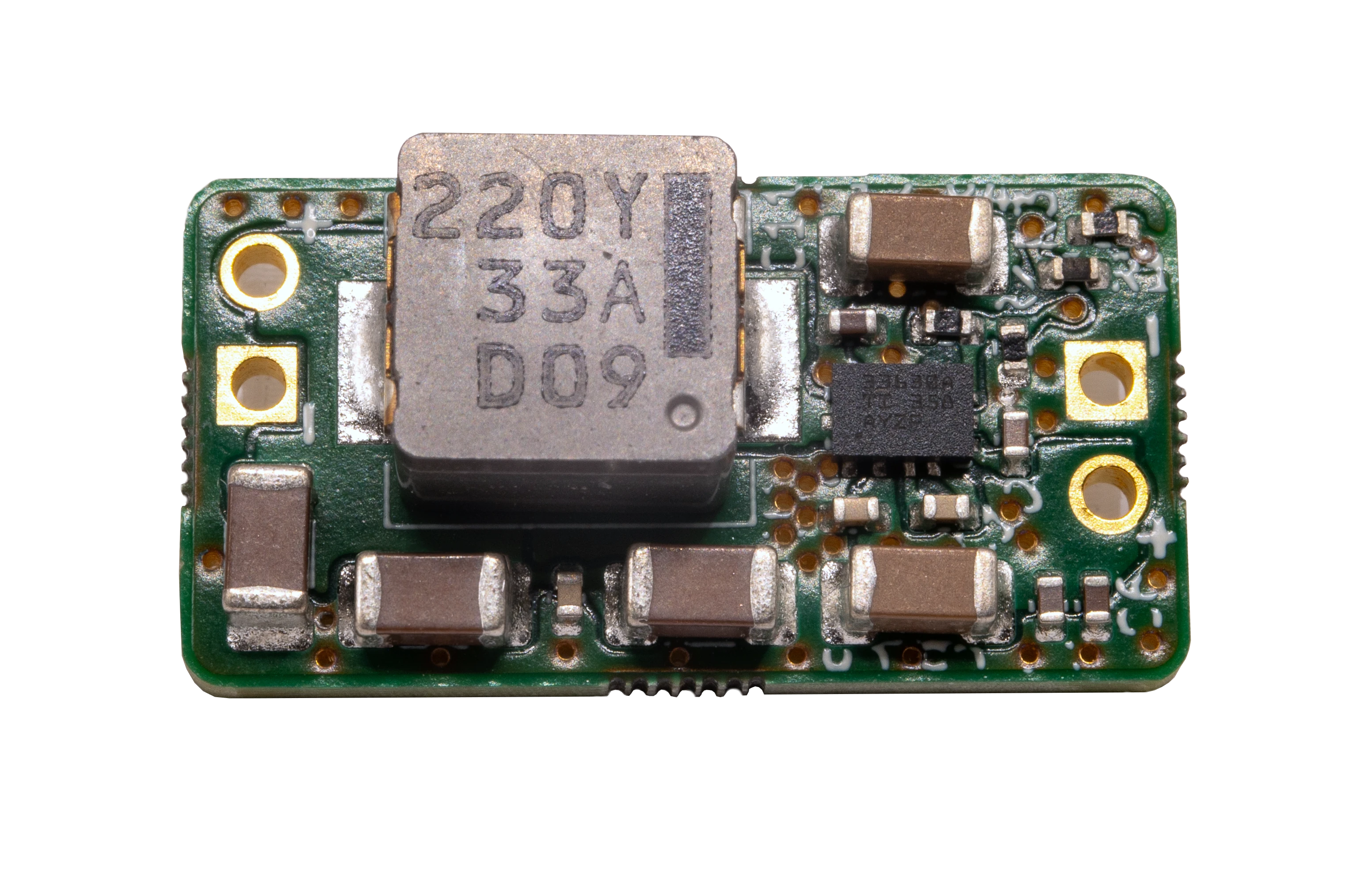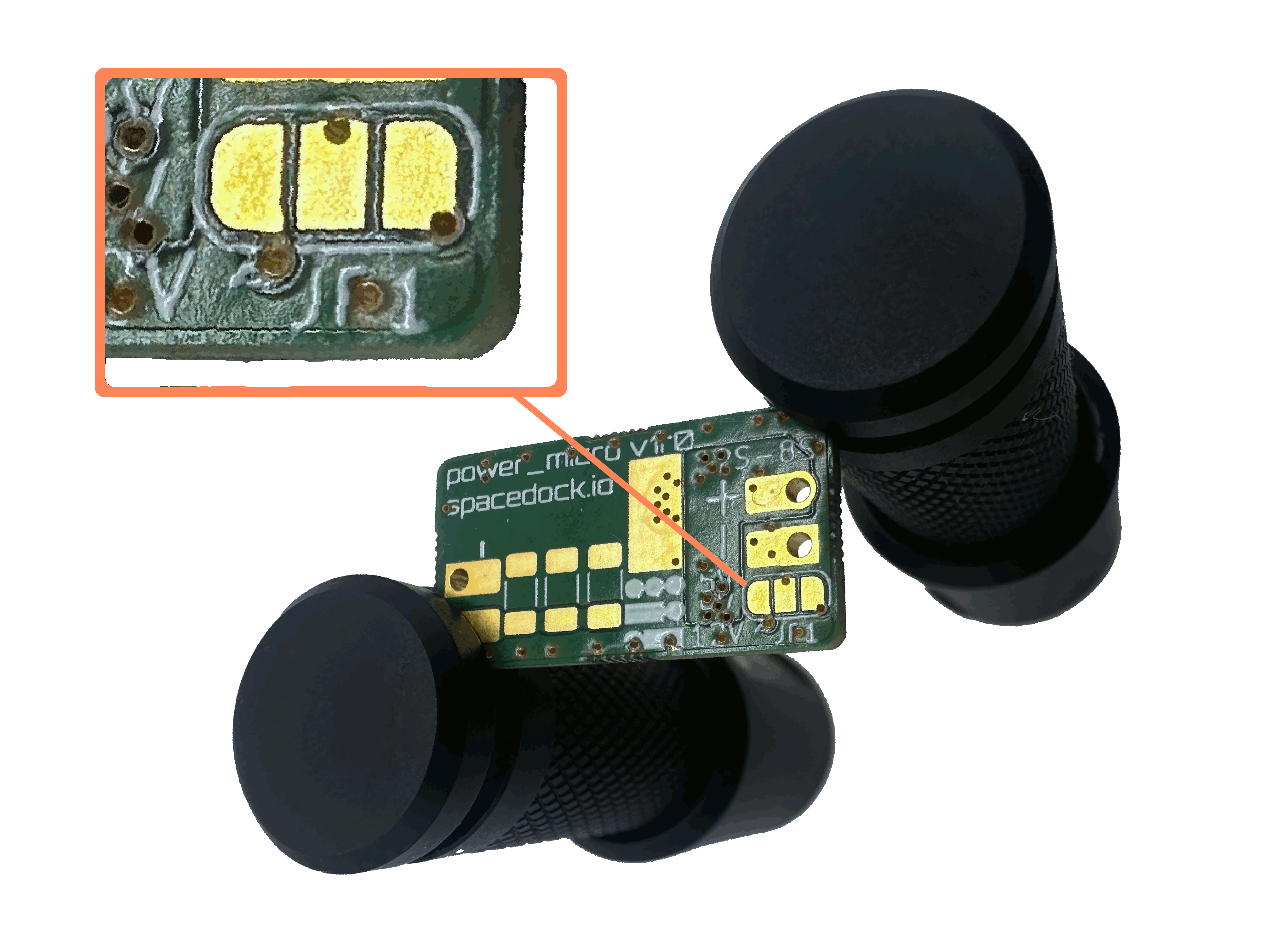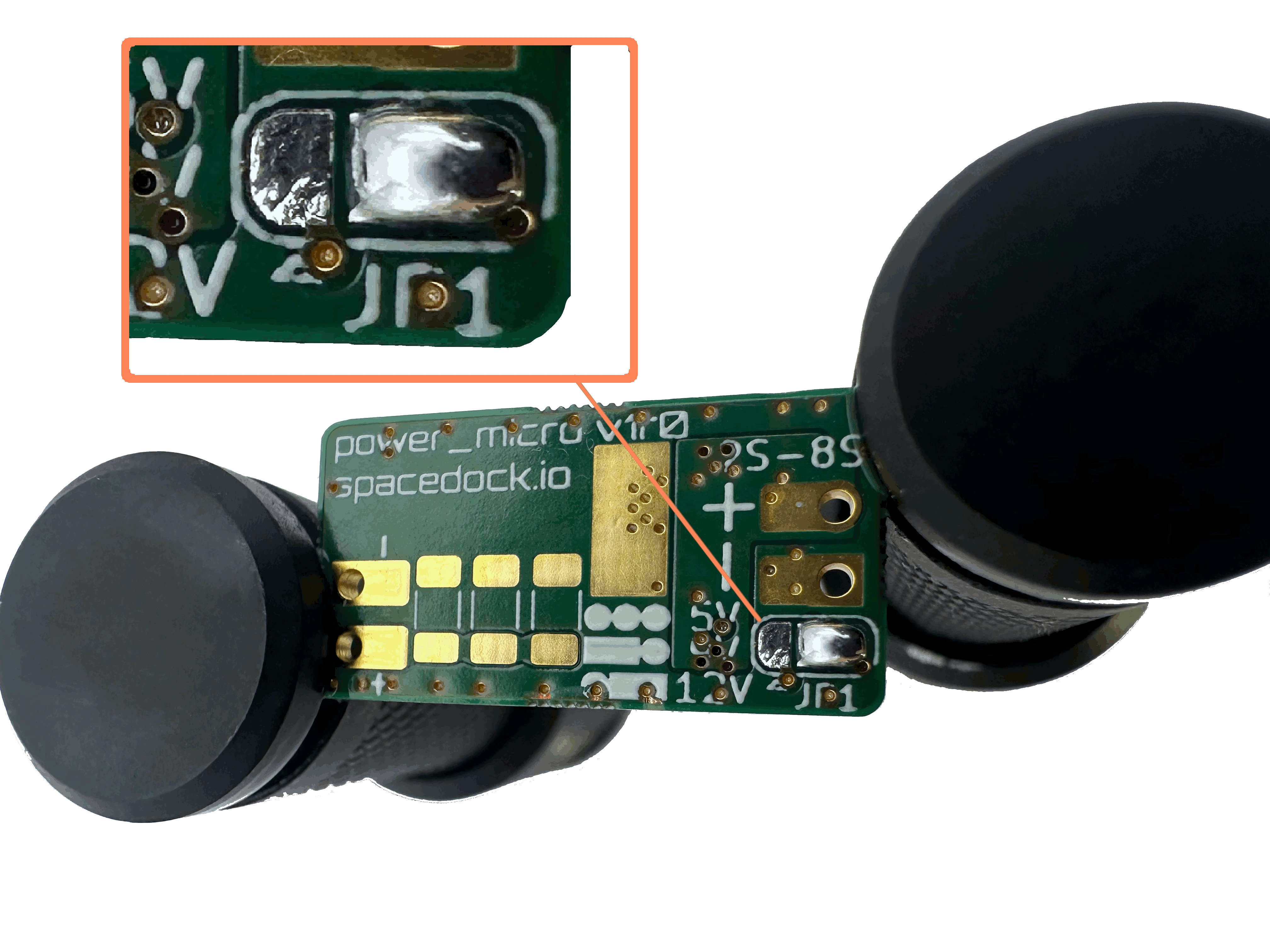power_micro

power_micro is a adjustable output voltage (5.3 V, 9 V and 12 V) DC - DC converter, capable of delivering 3 amperes of current, in a tiny form factor (22 x 11 mm).
power_micro is designed for space-constrained applications, such as powering on-board equipment in drones - looking to reliably power a video transmitter, or a Raspberry Pi (or any other SBC) on your craft? This is just the thing for you.
It can also be used by electronics hobbists as a plug and play DC - DC converter for their PCB assemblies. KiCad footprint and symbols can be found in our GitHub repository.
Applications
- Powering flight controllers, computers, on-board sensors and video equipment
- Embedding as a power module on printed circuit board assemblies
Specifications
Electrical
- Input: 6 V - 36 V (2S - 8S), at least 1 V higher than selected output voltage
- Output: adjustable (5.3 V, 9 V or 12 V, default: 5.3 V), 3 A
- Overcurrent and short circuit protection
- Low EMI and switching noise
- Thermal shutdown
Mechanical
- Dimensions: 21.79 x 11.35 x 7 mm
- Weight: 2.84 g
- Pin spacing: 18.44 x 2.54 mm
Package contents
- power_micro in an ESD-safe bag
- heat shrink sleeve
Made in Europe.
Adjusting the output voltage
power_micro allows adjusting the output voltage from default 5.3 V to either 9 V or 12 V, by bridging appropriate pads on a solder jumper.
Before you begin
Make sure the device is not connected to a power source. Observe ESD precautions.
Locate the jumper. It can be found near the power input pads, on the backside of the board.

Configuration
Remove any pre-existing solder (solder wick or a desoldering pump should do a good job here).
In order to configure the module to output 9 V, bridge the pad indicated with the triangle with the middle pad, as shown.

In order to configure the module to output 12 V, bridge the middle pad with the pad closest to the board's edge, as shown.

Do not bridge all the pads together.
After you finish
Make sure to clean any remaining flux off the board before proceeding to use. Check the output voltage with multimeter to make sure it is correct before connecting any equipment to the module.
Last update: 12.06.2025